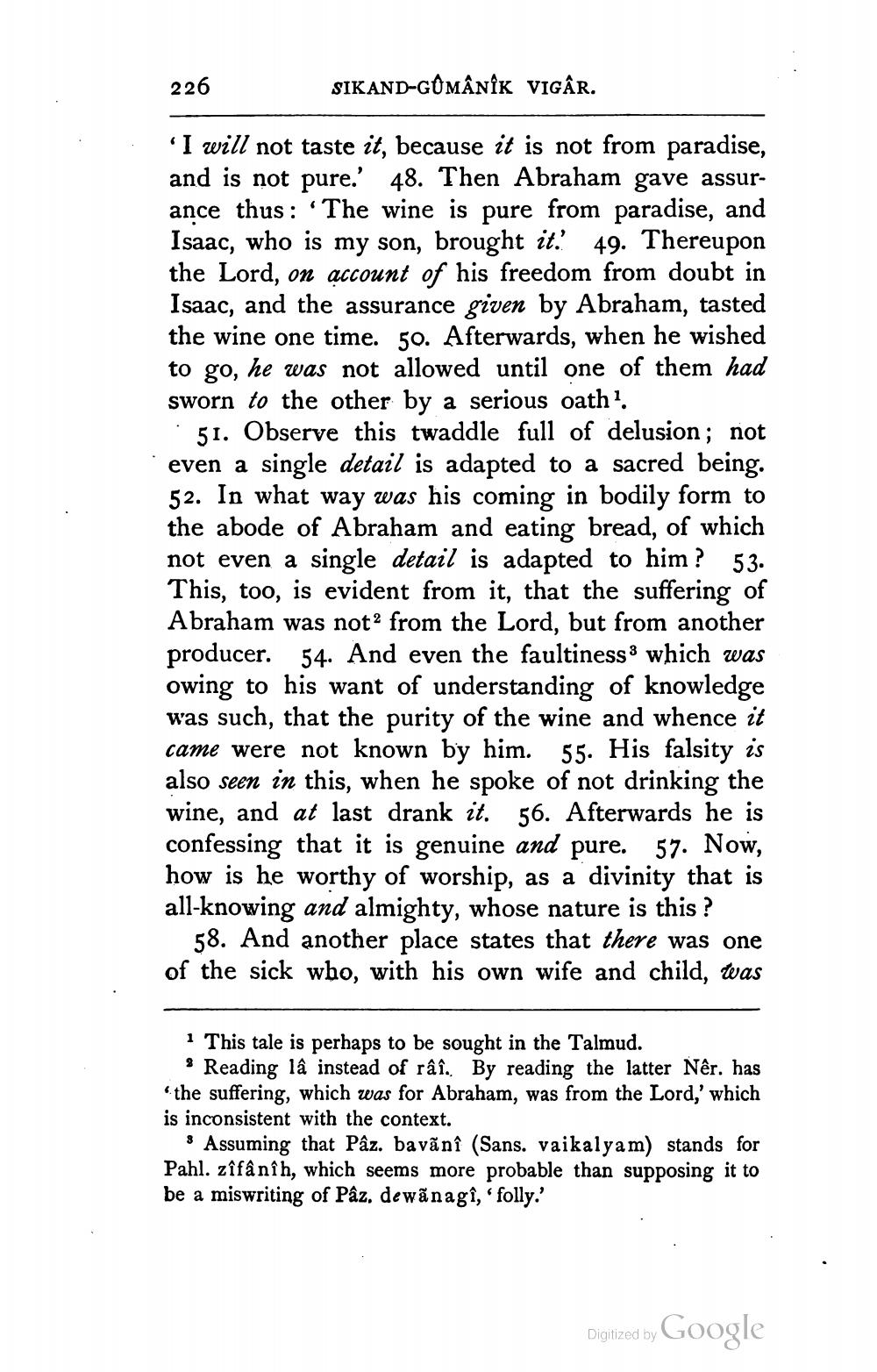________________
226
SIKAND-GÓMÂNÎK VIGÂR.
'I will not taste it, because it is not from paradise, and is not pure.' 48. Then Abraham gave assurance thus: The wine is pure from paradise, and Isaac, who is my son, brought it. 49. Thereupon the Lord, on account of his freedom from doubt in Isaac, and the assurance given by Abraham, tasted the wine one time. 50. Afterwards, when he wished to go, he was not allowed until one of them had sworn to the other by a serious oath 1.
51. Observe this twaddle full of delusion; not even a single detail is adapted to a sacred being. 52. In what way was his coming in bodily form to the abode of Abraham and eating bread, of which not even a single detail is adapted to him ? 53. This, too, is evident from it, that the suffering of Abraham was nota from the Lord, but from another producer. 54. And even the faultiness which was owing to his want of understanding of knowledge was such, that the purity of the wine and whence it came were not known by him. 55. His falsity is also seen in this, when he spoke of not drinking the wine, and at last drank it. 56. Afterwards he is confessing that it is genuine and pure. 57. Now, how is he worthy of worship, as a divinity that is all-knowing and almighty, whose nature is this?
58. And another place states that there was one of the sick who, with his own wife and child, was
1 This tale is perhaps to be sought in the Talmud. * Reading lâ instead of râî. By reading the latter Nêr. has the suffering, which was for Abraham, was from the Lord,' which is inconsistent with the context.
8 Assuming that Pâz. bavânî (Sans. vaikalyam) stands for Pahl. zîfânîh, which seems more probable than supposing it to be a miswriting of Pâz, dewănagî, 'folly.'
Digitized by Google




